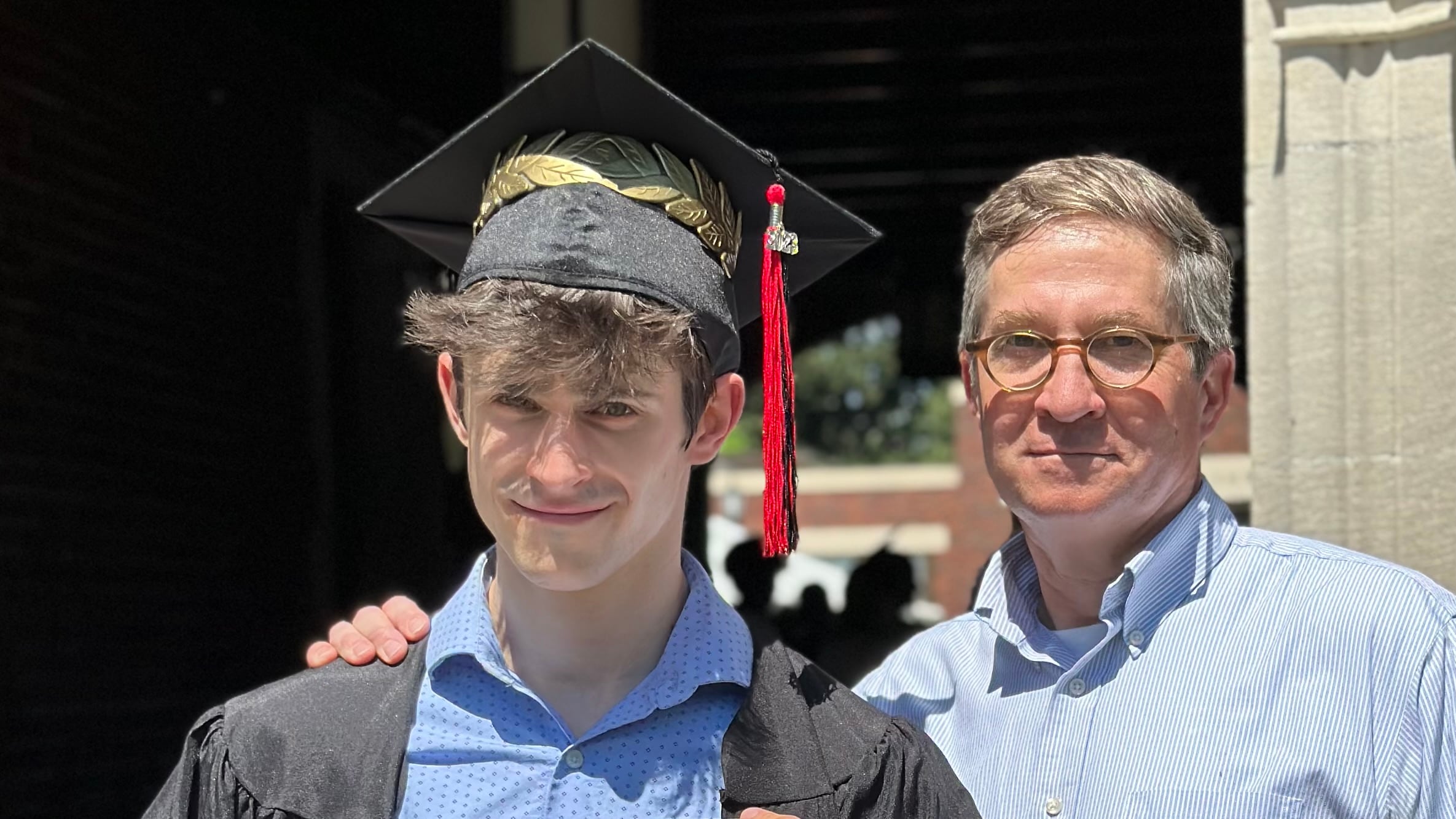Kevin T. Myers freely concedes he was exorcising some demons with his new novel. He insists, however, they were not Reed College’s demons.
Myers is not Peter Cook, the protagonist of Need Blind Ambition. Parker College isn’t Reed. And the excerpts you just read from the novel shouldn’t be confused with historical events. That’s Myers’ story and he’s sticking to it as he discusses his second novel, although he says he started mixing personal journal entries with national headlines as early as 2009 while he was still communications director at Reed.
Still, we had to ask. Both Myers and his literary alter ego were transplanted to Portland and tasked with crisis public relations for an exclusive private college with a drug overdose problem in the 2000s.
Myers, 56, now lives in Juneau, Alaska, overseeing leadership training for the SouthEast Alaska Regional Health Consortium. If there’s even a little of Peter Cook in him, the return to the Inner Passage must come as a relief: Cook spends most of the novel pining for Alaska. Myers spoke to us by cellphone from his car parked above Sitka Bay.
WW: Why did you write this book?
Kevin T. Myers: I thought you were going to ask, is it autobiographical? And, of course, some of it is, but not in the way a lot of people may think. I have post-traumatic stress syndrome from childhood trauma. And I started writing this first as just journals, to make sense of what I was going through. It almost started out as diaries. I just turned the journals into fiction as a way of controlling what is otherwise uncontrollable.
How do you feel about Reed?
My son just graduated from there in May. I still have fond feelings for it. Frankly, I was pretty done with working in higher ed in general.
It’s hard to separate the character Loch from Colin Diver, and it’s hard to separate the protagonist from you. Can you unpack that?
It’s based on some things that were reported in your newspaper, right? So, you know, there is a grain of truth to that. I was taking essentially what was reported in the press, what was known, and kind of drawing this worst-case scenario. It’s like there’s an atom of truth, but the mushroom cloud is fiction.
A reader could say, “Absolutely, everything was in the press.” But a reader could also say, “Here’s the guy who was in the meetings, who was in charge of damage control. Is he telling us things we didn’t know?” On the HIPAA issue, for instance, or on the need-blind admissions?
Yeah, I think it should be read more broadly and more generally. You understand it in a Portland context, but other people from other small liberal arts institutions have talked about how it feels real and resonates with them. I felt like I had been through something. And so I felt like I could very authentically bring you into those rooms—and not share what was actually said, but share a worst-case scenario of what could very easily have happened.
Do you feel you exorcised some Reed College demons while writing this book?
I wouldn’t call them Reed College demons, but I would call them demons. This is not what you wanted, but I went through EMDR [eye movement desensitization and reprocessing] therapy to deal with my childhood trauma. This book was a way for me to sort of understand a time in my life right when that was diagnosed.
Have any of your former colleagues from Reed read the book? Have you heard from any of them?
I’ve heard from some professors. I’ve heard from a couple of the trustees. It’s all been very positive. I posted the book jacket language on LinkedIn, and Colin Diver commented, “Boy, that looks familiar.”
